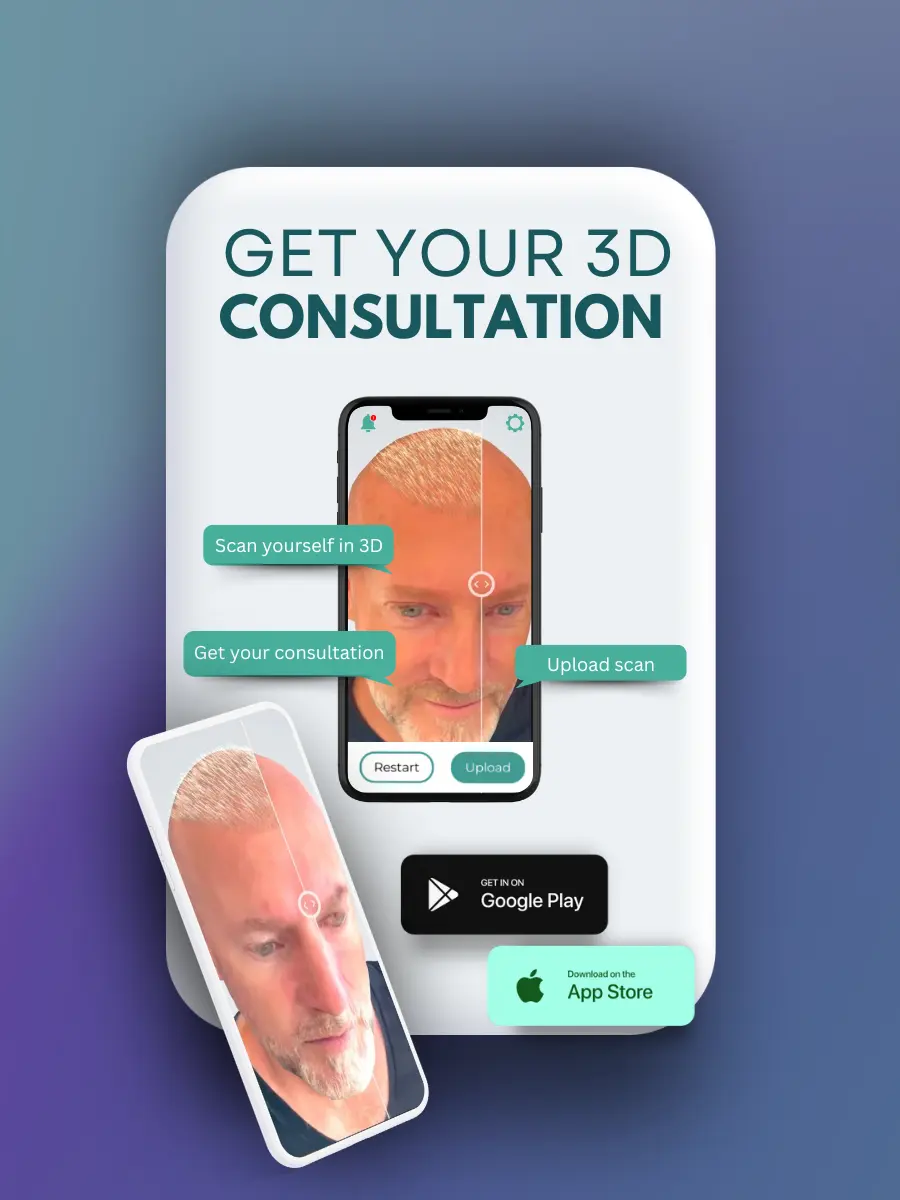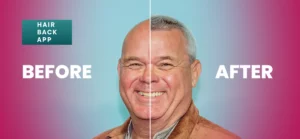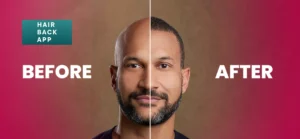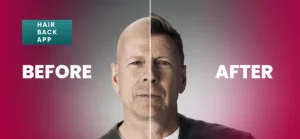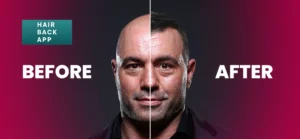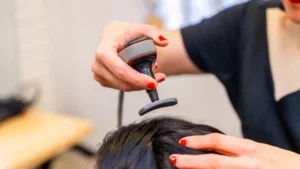Introduction
Benefits of Hair Restoration go beyond mere physical appearance, as hair plays a vital role in our identity and self-image. Losing hair can be emotionally challenging, leading to feelings of inadequacy, low self-esteem, and even depression.
My name is Emma Wright, your resident hair restoration specialist. Today, we’ll be looking at some psychology benefits of hair restoration, this article explores how the benefits of hair restoration can significantly improve confidence and self-esteem.
For many, restoring their hair is not just about aesthetics but about regaining confidence and emotional well-being. Hair restoration helps individuals feel better about themselves, boosting their self-esteem and empowering them to engage more fully with the world.
The Emotional and Psychological Impact of Hair Loss
Hair loss affects millions worldwide, and its impact goes beyond the physical. Many people associate their hair with identity and youthfulness. Losing hair can result in a crisis of confidence, making individuals feel less attractive and older than they are. Studies have shown that individuals experiencing hair loss may face anxiety, social withdrawal, and even career setbacks. Understanding these emotional effects is crucial to addressing the benefits of hair restoration effectively.
Understanding the Cost of Hair Transplant
While the benefits of hair restoration are clear, the financial aspect is also important. The cost of hair transplant procedures can vary based on factors such as the technique used, the extent of hair loss, and the clinic’s location. Understanding these costs helps individuals make informed decisions, weighing the long-term emotional benefits against the financial investment. Many find that the boost in confidence and self-esteem is well worth the expense, considering it an investment in their mental and emotional well-being.
Case Studies: Real-Life Stories of Individuals
Real-life stories vividly illustrate the benefits of hair restoration in boosting confidence. Consider John, a 35-year-old marketing executive who experienced hair thinning in his late twenties.
John’s self-esteem took a hit, affecting his performance at work and his social life. After undergoing a hair transplant, John found that his confidence skyrocketed. He started engaging more in social activities and even took on more leadership roles at work.
Another example is Sarah, a 42-year-old teacher who struggled with hair thinning due to stress and hormonal changes. After a successful hair restoration procedure, Sarah reported feeling rejuvenated and more confident in her personal and professional life. These stories underscore the transformative power of hair restoration in restoring not just hair but also self-assurance.
Mental Health and Hair Loss
Understanding the connection between hair loss and mental well-being is essential to appreciating the benefits of hair restoration. Hair loss can trigger or exacerbate mental health issues, including depression and anxiety.
For many, it is more than just a cosmetic issue; it becomes a psychological burden. Addressing this connection can help individuals make informed decisions about seeking treatment.
When someone experiences hair loss, it often leads to self-scrutiny and a drop in self-esteem. This emotional distress can manifest as anxiety or depression, impacting daily life and relationships. By addressing hair loss through restoration techniques, individuals often find relief from these psychological burdens, leading to improved mental health.

The Role of Therapy and Support
In addition to the benefits of hair restoration, therapy and support groups can play a significant role in addressing the psychological effects of hair loss. Engaging in therapy can provide individuals with tools to cope with self-esteem issues and help them develop a positive self-image.
Support groups offer a community where individuals can share their experiences and encourage one another. By combining hair restoration with psychological support, individuals can experience a comprehensive approach to improving mental health.
This holistic method emphasizes that addressing both the physical and emotional aspects of hair loss is key to achieving lasting confidence and self-esteem.
Consultation Insights: Addressing Emotional Concerns
Consultations play a critical role in understanding the benefits of hair restoration and addressing emotional concerns. During a consultation, specialists assess not only the physical aspects of hair loss but also the psychological impacts. Patients often express fears and anxieties about their appearance and self-worth.
Effective consultations help patients understand the myths and misconceptions about hair transplants and provide realistic expectations. By doing so, patients can feel more at ease with the process, knowing what to expect and how it can positively affect their lives.
This holistic approach ensures that emotional concerns are addressed alongside the physical aspects of hair restoration.
Personalized Treatment Plans
Consultations are also crucial in developing personalized treatment plans that cater to an individual’s specific needs. By understanding the patient’s goals and concerns, specialists can recommend the most suitable hair restoration techniques, ensuring the benefits of hair restoration are maximized.
These customized plans often include post-procedure guidance on maintaining your new hairline and tips on lifestyle changes to support overall hair health. This personalized approach helps individuals achieve their desired outcomes and enhances their confidence and satisfaction with the process.
Long-Term Benefits: Lasting Impact on Self-Esteem
The benefits of hair restoration extend far beyond the initial procedure. The long-term impact on self-esteem is profound, often leading to lasting changes in personal and professional life. Once individuals regain their hair, they often experience renewed confidence, improving their interactions with others and enhancing their quality of life.
A restored hairline often leads to a domino effect of positive changes. People who have undergone hair restoration frequently report feeling more youthful, energetic, and motivated.
They are more likely to pursue new opportunities and engage socially, resulting in a more fulfilling life. The hair growth cycle plays a crucial role in maintaining these benefits, ensuring that restored hair continues to boost confidence over time.
Enhanced Social and Professional Opportunities
With increased confidence comes a willingness to explore new social and professional opportunities. Individuals often find that they are more willing to take risks and pursue goals they previously considered unattainable.
This newfound self-assurance can lead to career advancements, stronger personal relationships, and a more active social life, further illustrating the benefits of hair restoration.
Nutritional Insights and Maintenance
Nutrition in hair growth and health plays a vital role in the benefits of hair restoration. Maintaining a balanced diet rich in vitamins and minerals can support hair health and the success of restoration procedures. Patients are often advised on the importance of nutrition, emphasizing foods rich in biotin, zinc, and vitamins A and C.
Maintaining your new hairline involves regular care and attention. This includes following a healthy diet, using appropriate hair care products, and avoiding harmful practices that can damage hair. By focusing on nutrition and maintenance, individuals can ensure the longevity of their restored hair, maximizing the benefits over time.
The Science Behind Hair Health
Understanding the science of hair growth can further enhance the benefits of hair restoration. The hair growth cycle consists of three phases: anagen (growth), catagen (transition), and telogen (rest). By supporting this natural cycle through proper nutrition and care, individuals can optimize the health and appearance of their restored hair.
Lifestyle Changes for Optimal Results
In addition to proper nutrition, lifestyle changes can significantly impact the success of hair restoration. Regular exercise, stress management, and avoiding smoking and excessive alcohol consumption can all contribute to healthier hair. These changes not only support hair growth but also improve overall well-being, further enhancing the benefits of hair restoration.
Conclusion
The benefits of hair restoration are manifold, extending beyond mere physical changes. The psychological and emotional impacts are significant, offering individuals a chance to regain confidence and self-esteem.
By understanding the benefits of hair restoration, individuals can make informed decisions about their journey, embracing the holistic improvements that come with restored hair.
In conclusion, hair restoration offers more than just aesthetic enhancement; it provides a pathway to improved mental health and well-being. By addressing both the physical and emotional aspects of hair loss, individuals can experience a comprehensive transformation that empowers them to lead more confident and fulfilling lives.

